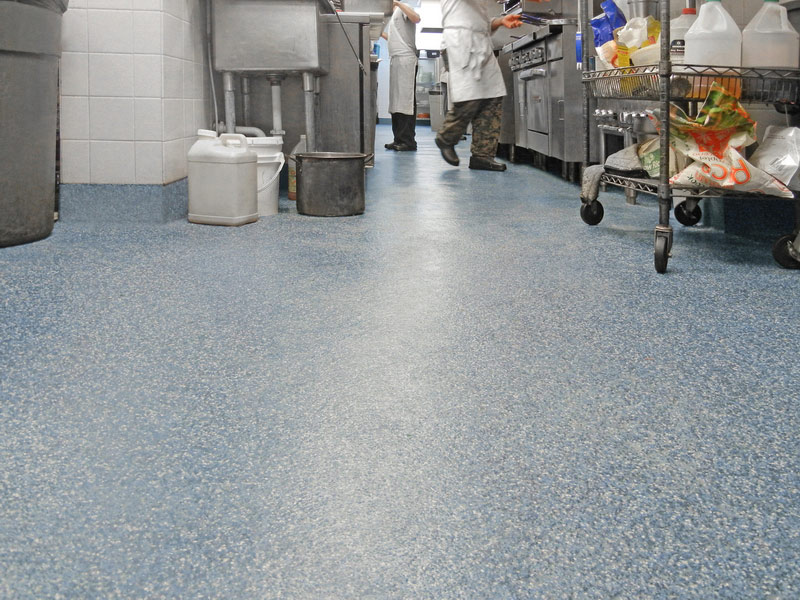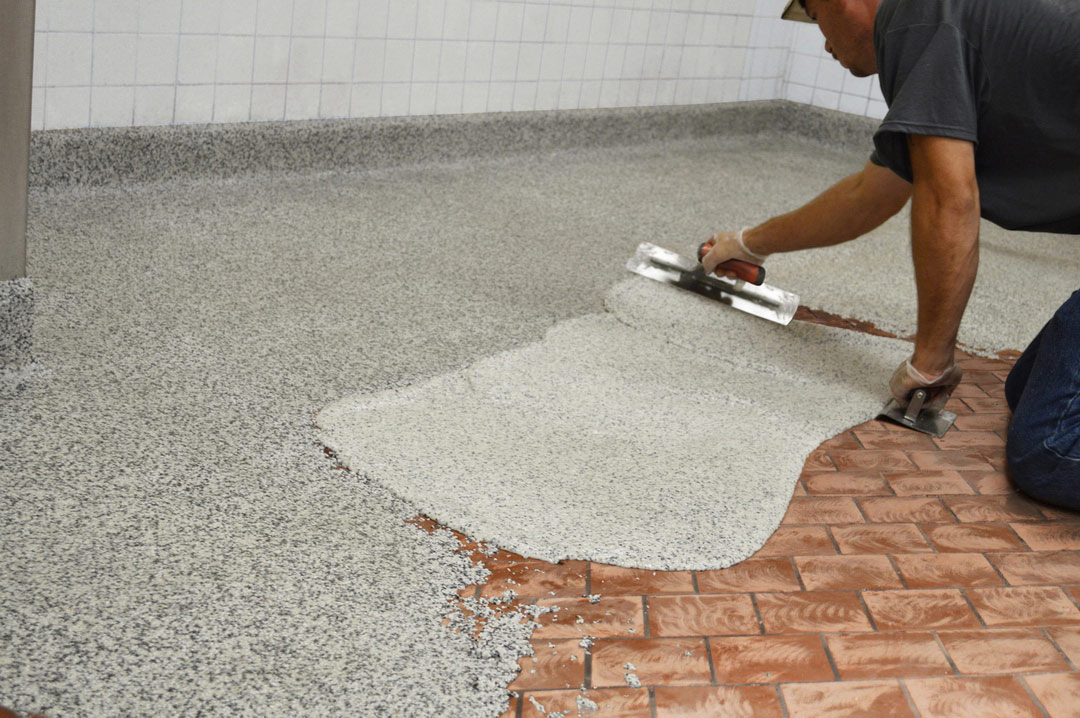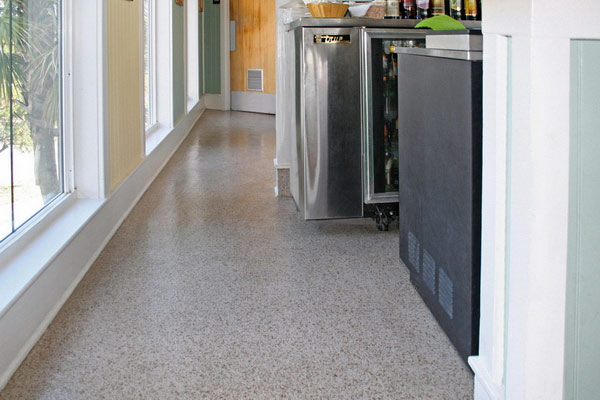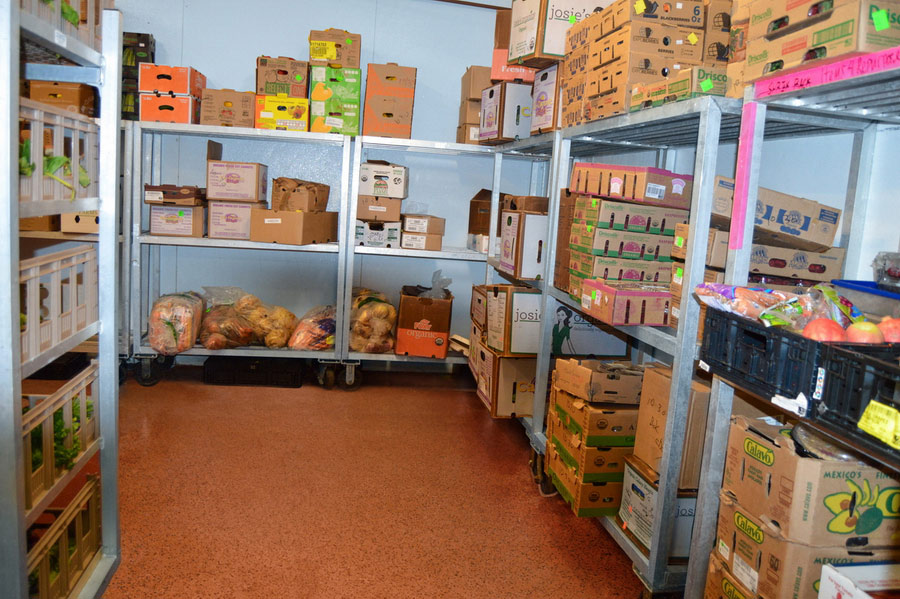When it comes to choosing a new flooring system for industrial or commercial use, epoxy flooring stands head and shoulders above most other surfaces for its durable and decorative properties.
But are all epoxy floor coatings the same? With so many resinous flooring options out there, how can you be sure you are making the right choice for your business and your budget?
We’re here to help you understand the pros and cons of two of the most common flooring types. Read on for an in-depth look at epoxy quartz flooring versus our long-lasting Everlast® Epoxy floors.
What is epoxy quartz flooring?
Epoxy quartz flooring is created using an epoxy polymer resin blended with grains of quartz. It’s commonly used as industrial flooring or in areas that are frequently wet—such as restrooms or locker rooms—because the quartz grains give the flooring reliable slip-resistant properties.
Installing an epoxy quartz floor is a multiple-step process. The three-part system consists of an epoxy primer, followed by a layer of epoxy quartz mortar, and finally a top coat of sealant to protect the underlying quartz.

Need a fast installation?
Unfortunately, epoxy quartz flooring is not an ideal choice if you need to install a new floor in a hurry. In the business world, any downtime is nonproductive and costly, so it’s important to replace flooring as quickly and efficiently as possible,
The three-step process of laying an epoxy quartz floor means there will be a large period of downtime. Each layer takes time to cure, which is not always practical in a busy, agile organization.
If time is of the essence, Everlast® Epoxy flooring offers a hard-wearing alternative. We mix high-quality resins with small marble chips that are then troweled over your existing substrate to form a vulcanized, seamless bond.
Our one-step process drastically reduces downtime, and if you are in a really tight fix, we also offer an Overnight (Fast Cure) Floor that can be installed after hours and be ready for you when you open your doors for “business as usual” the following day.

No chipping, peeling, or blistering
The quartz layer of an epoxy quartz floor is painted over the initial resin layer, and is applied as a thin coating before the sealant is added. The finished result is a brittle floor with very little flexibility, which can lead to delamination from the concrete.
Complications can also arise if the concrete substrate is very porous. Trapped air between the layers expands as it begins to warm, causing bubbles to appear on your newly laid floor.
In comparison, our resin-rich epoxy floors are installed at a thickness of 160 mm and form a tight, flexible bond that will outlast its counterparts without any blistering, peeling, or delamination issues.

Solvent-free flooring
Choosing a solvent-free flooring solution can help to eliminate bonding issues. Any floor that uses a solvent is at increased risk of blistering and peeling as the vapor pressure from the adhesive increases.
Couple this with the fumes and odors that solvents release and you may end up with enforced downtime while the fumes clear—only to find you are left with a floor that’s not up to the job.
Epoxy quartz floors use a solvent-based formula, which is unlike our solvent-free alternative that releases no odors or vapors that could cause issues further down the line.

Epoxy resin or epoxy quartz? The choice is clear
From industrial units and factories to warehousing and commercial facilities, if you want durable, easy-to-install flooring with a professional finish, choose Everlast® Epoxy.
If you are thinking about investing in a long-lasting flooring system, our thick epoxy flooring is the preferred choice when compared with epoxy quartz flooring.
Call our friendly flooring experts on (800) 708-9870 to chat about your new floor or request a free sample and a no-obligation quote online.
